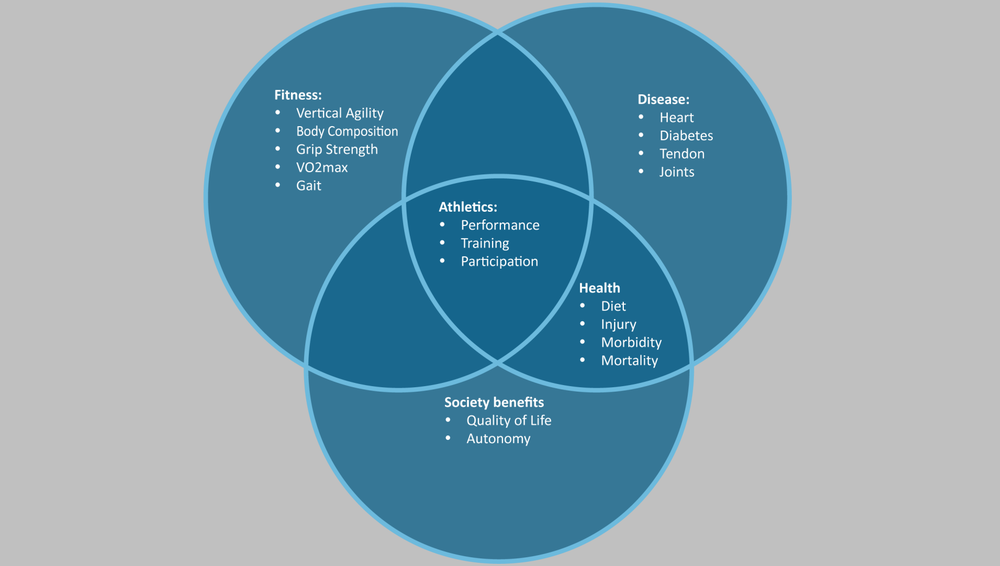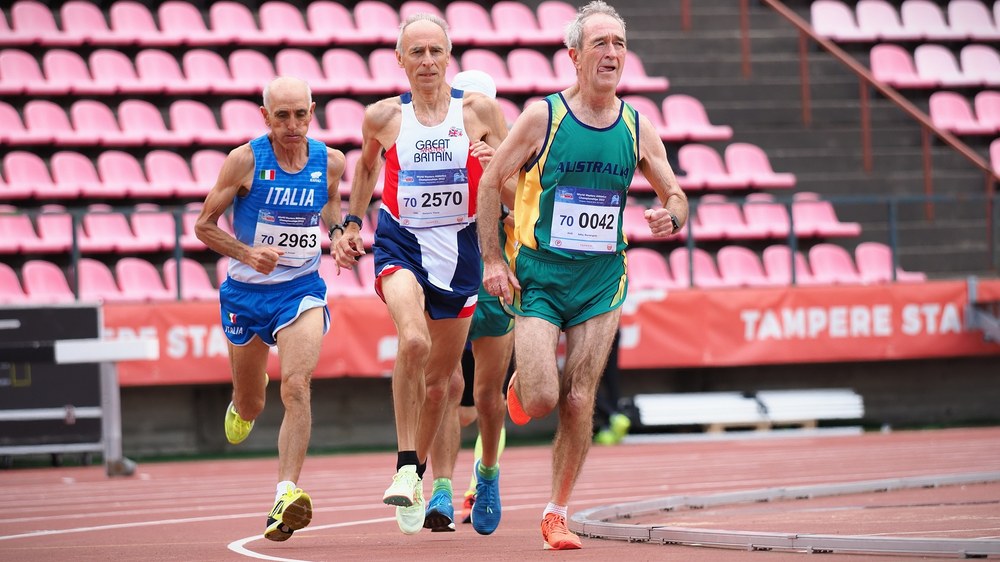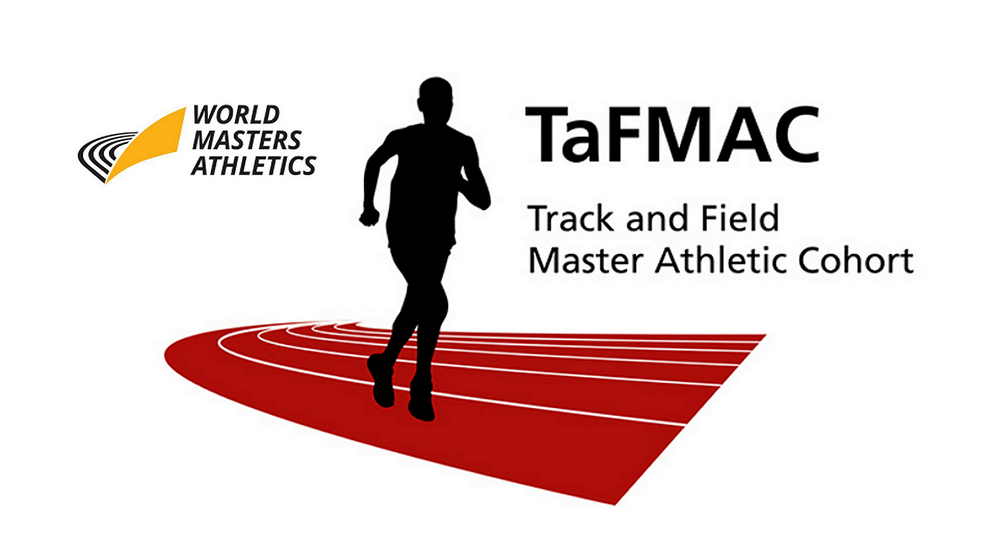TaFMAC Study
Background of the TaFMAC study
It is widely accepted that exercise promotes health. But what type of training is optimal and what are the risks? To answer this question, we collect data on fitness, training habits, nutrition, competition performance, quality of life and medical aspects from older athletes.

In contrast to many people who reduce their physical activity as they age, masters athletes often remain active in competitive sports well into their 9th decade. The 'Track and Field Masters Athletics Cohort' (TaFMAC) project collects data from these athletes and contributes to a better understanding of the advantages and disadvantages of competitive sports at an advanced age. For this purpose, examinations are regularly carried out at athletics championships, which are co-financed by the participating athletes.
After completing the study, we want to be able to give evidence-based recommendations to athletes, but also to the general population.
The study started in 2022 and has so far conducted two campaigns to collect data, namely 2022 in Tampere (Finland), 2023 in Torun (Poland), 2024 in Gothenburg (Sweden). So far 673 athletes have taken part. The next campaign will be conducted from 23-30 March 2025 in Gainesville, Florida (USA).
The study is being carried out by the DLR Institute of Aerospace Medicine’s Department of Muscle and Bone Metabolism. The internal cooperation partner is the Department of Cardiovascular Aerospace Medicine, further partners are the Universities of Austin/Texas (USA), the University of Saskatchewan (Canada) and the University of Jyväskylä (Finland) as well as the local university in Gainesville.


